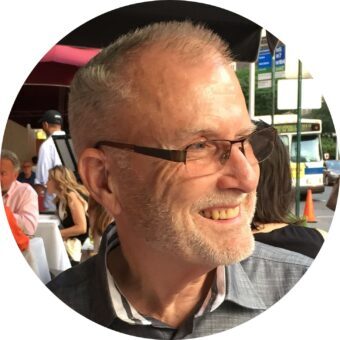
Richard
Nisbett
Richard E. Nisbett is the Theodore M. Newcomb Distinguished Professor of social psychology at the University of Michigan. His research on the way people reason and make inferences about the world has shown both that reasoning can be seriously flawed and that it is surprisingly subject to correction by training. His most recent work is on the nature of intelligence and its modifiability.
Transcription of the video
Which domain or aspect of social life will show the most significant positive societal and/or psychological change in response to the pandemic?
The only one that I feel qualified to speculate about is the academic impact, tele-academics that we’re going to be having as an option. And there are positive and negative aspects, but the positive aspects. If you’ve got a class 75 people, the same two people raise their hand all the time. If you have got, everybody lined up and they say they can raise their hand without actually moving their hand, they just push a button and he can decide who to call on. So mix it up a bit, it isn’t just the same two people with the shortest latency. Some higher education people are going to see advantages to that. And we’ll be inclined to use it I’m sure for lots of circumstances. Then at the elementary level, and probably also at secondary level as well, but certainly the elementary level, some children are saying now, I like this zoom education so much better than being in class, there’s not the chaos that you have in class, there’s not the jerks. At least for some kids, for some kinds of education, it’s going to be a plus.
What kind of wisdom will people need to capitalize on the positive societal and/or psychological change after the pandemic?
The wise thing to do is to get very serious about finding out what kinds of courses are taught to what kinds of people to the best effect. And it’s a huge amount of research that needs to be done. Rather than people automatically doing internet communication or automatically doing classroom education, let’s have some idea what kind of subjects and what kind of people would make sense for.
Which domain or aspect of social life will show the most significant negative societal and/or psychological change in response to the pandemic?
It’s internet education. There is something that goes on in a real classroom, that’s superior, to what you can get, it’s an immediacy, a clear reading of body language and facial expressions and so on, that gets lost. I worry that people will be using the internet education automatically without seriously thinking about it, which would be a big problem. The thing I most fear is that people will, if they have the option to get, their higher degree of BA be online for a very low price that many people will take it, who should not? Certainly if there’s no way for you to get a really super college education, except through online means that’s one thing. But if you are the sort of person who could afford to pay for college education or who could expect to get a scholarship for college education, then it’s a huge loss not to do that. Your fellow students are as important as education, at any rate, who are extremely important. They’re doing things. They can tell you what you said that’s stupid, and you can think then why is that stupid, and generalize from there. They can model intelligent thinking in all kinds of domains. So, a 1200 dollar online Stanford education is not going to give you anything like what the real thing can get.
What kind of wisdom will people need to master to overcome major negative societal and/or psychological changes after the pandemic?
You just need to do the research and find out what kinds of teachers, what kinds of topics, what kinds of students are best done online.
What piece of wisdom do people need to make it through the pandemic?
The most important thing is, what can I do that’s safe. And, unfortunately, our public health people have been all over the map. Public health officials have said things that when they said them, I knew they were wrong in most cases, they come back and say, “oh, I’m so sorry about that, actually masks are a good thing, so sorry.” Six weeks of public health telling us masks can do no good.
Themes discussed in this interview

